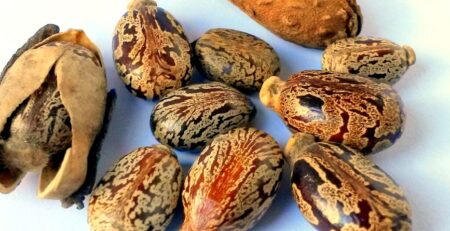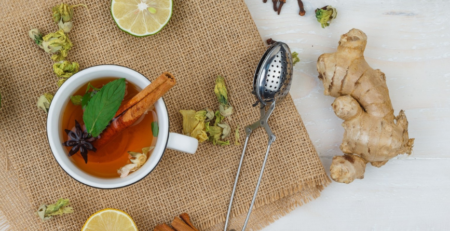Oral Health: Nutrition and Best Practices
Do you know your teeth and smile are the first things people notice about you, when they first meet you? A great smile can be the right measurement of overall hygiene and general lifestyle, demonstrating someone’s cleanliness, while revealing what they eat and drink, as well as if they smoke or not. While a healthy smile is attractive, the opposite is also true for poor oral health. The British Dental Health Foundation’s new poll revealed a partner’s most significant smile crimes, with men named as the guiltiest culprits of bad oral health habits, consisting of bad breath, stained teeth, and not brushing twice a day as the biggest turn-offs.
Oral health is not just about getting a date or being attractive to your partner; although that would be a beneficial side effect, it is also very important for your overall health. Human beings have something called the “Oral Microbiome”, which is the second-largest and diverse microbiota after the gut, harboring over 700 species of bacteria, including fungi, viruses, and protozoa that are important to maintain oral health.
Oral bacteria of the human oral microbiome can provide an essential defense against invading bodies. This occurs when the microorganisms work in synergy. However, if there is an imbalance, this can have several adverse effects on the host’s health (us).
This microbial imbalance is called a “dysbiosis”. When it occurs, it can be a contributing factor to several diseases, like inflammatory bowel disease, Alzheimer’s, diabetes, pancreatic cancer, and cirrhosis of the liver. The human microbiome interacts very closely with our immune system. Consequently, the immune system may be affected by dysbiosis, contributing to conditions, such as rheumatoid arthritis and skin conditions. Dysbiosis of the oral microbiome has also been related to the cardiovascular system and the development of atherosclerosis. These findings show the significant influence that the oral microbiome has on overall health.
What improves and harms the oral microbiome?
- Foods that help in improving the oral microbiome:
- Complex carbohydrates and fibre-rich foods, which include fresh fruits and vegetables:
Green leafy vegetables are beneficial prebiotics that, when ingested, serve as food for healthy oral bacteria. In contrast to high carbohydrate foods, leafy greens help the mouth produce more nitrite-reducing bacteria. In turn, your mouth and cardiovascular system benefit from an increase in nitric oxide. Nitric oxide is a well-known vasodilator with anti-bacterial properties. It helps neutralize acids that cause cavities, and eliminate pathogenic bacteria that cause gums to bleed and produce bad breath.
The combination of nitrate, which is a bioactive molecule naturally present in vegetables and oral bacteria, has proved to be effective against oral diseases.
Not only will leafy greens leave your teeth feeling cleaner, but they will also actively support a healthier oral microbiome. Darker leafy greens are the best for teeth, as they are also high in minerals that our teeth take in during remineralization to strengthen their structure. Good examples of these include kale, spinach, turnip greens, bathua (goosefeet), sarson (mustard greens), Swiss chard, and arugula.
Fresh fruits are full of nutrients like vitamins and minerals that are essential for a healthy body. They also have a fair amount of water and fiber to balance out the natural sugars they contain. Chewing raw fruits and vegetables, especially crunchy ones, stimulates saliva production to wash away acids and food particles.
Citrus fruits like kiwis, oranges, grapefruit, and some berries also have good amounts of vitamin C and calcium. High levels of vitamin C strengthen the blood vessels and connective tissues within the mouth. It also slows gum inflammation progression (like gingivitis) that could otherwise lead to gum disease.
- Vitamin A, vitamin D, and Omega 3:
Vitamin D works synergistically with vitamins A and K2 to deliver calcium to the teeth, and strengthen enamel from the inside. A deficiency in any of these nutrients can lead to weakened enamel.
Omega-3 fats support gum health, and may even prevent and reduce periodontitis symptoms (gum disease), which affects a lot of adults.
While for Vitamin D, you can include salmon, mushrooms, egg yolk, and exposure to the sun, most of the time, supplementation is required under your doctor’s supervision.
Including foods like sweet potato, pumpkin, papaya, squash, and yellow maize will give you a good amount of vitamin A. Since both vitamin A and D are fat-soluble vitamins, try and include some form of healthy fats to help with their absorption. Sprinkling a teaspoon of pumpkin seeds or sesame seeds on your food can give you good fats (omega 3), improving vitamin A and D’s absorption, and thereby improving the oral microbiome.
- Water:
Water is as effective as mouthwash at swishing away stuck particles and residue from teeth without the harmful chemicals in a mouthwash. It also keeps your gums hydrated, while stimulating saliva, the best defense against bacteria. Drinking water keeps your mouth moist and, helps to eradicate the dryness that bacteria need to thrive.
Further, drinking water after eating removes any leftover bits of food, leaving little to sustain the bacteria. Some foods and drinks can leave your teeth stained. Lollies, icy poles, coffee, and soft drink are just a few favorites that can stain your teeth over time. It is beneficial to drink water after consuming these foods and beverages. Swishing water in your mouth a few times can help rinse off the staining elements present in these snacks.
- Foods to be avoided:
- Sugar, sugary drinks, and snacks:
Sugar combines with saliva and bacteria present in the mouth, leading to plaque formation on your teeth. Plaque can dissolve enamel, leading to cavities. Avoid foods like toffees, dried fruits with sugars, sticky raisins, and tetra pack fruit juices full of sugar.
- Sodas:
Apart from their high sugar content, all sodas, even those with zero calories contain a significant amount of acid. On the pH scale, many standard soft drinks rank between 2 and 3, which is highly acidic even compared to drinks such as coffee. Acidity to this level within the mouth is more than likely to contribute to decay, gum inflammation, and a general dysbiosis of the oral microbiome.
If you want to indulge with soda but protect your teeth, drink it over a short period of time. Do not sip for hours on end, and swish with water immediately after to provide a buffer for your teeth. Wait for about 45 minutes, and then brush your teeth. However, it is best to avoid it for various obvious reasons.
- Oral health care products:
- Toothpaste and mouthwashes:
Get in the habit of reading the labels, and then eliminating products that might strip and destroy the microbiome. This includes detergent-based toothpaste and alcohol-containing mouthwashes. Stay away from ingredients like:
- Sodium lauryl sulfate (SLS)
- Sodium fluoride
- Triclosan
- Artificial sweeteners (such as sodium saccharin, aspartame, xylitol, and erythritol)
- Artificial colour dyes (often made from coal tar)
- Propylene glycol
- Diethanolamine (DEA)
- Microbeads (tiny solid plastic particles)
- Metal tongue scraper:
Debris, bacteria, dead cells, and toxins can build up on your tongue over time. This can lead to bad breath, and harm oral microbiome. Using a tongue scraper can help remove this buildup, and improve the tongue’s sense of taste and appearance. Researchers in 2005 found that using a tongue scraper (copper or steel) twice a day for seven days reduced the overall incidence of Mutans streptococci and Lactobacilli bacteria in the mouth. These bacteria types are known to cause bad breath and dental decay. Removing the unhealthy bacteria is key to preventing cavities, gum disease, and other conditions affecting the mouth.
- Floss:
When done correctly, flossing helps to remove food debris and bacteria from the areas that brushing cannot access, thereby preventing bacteria from building up micro-organic colonies in these areas. Regular flossing also disrupts the bacteria from turning into plaque, a sticky coating of yellowish substance that stains and damages your teeth over time. Together, daily brushing and flossing form the bedrock of at-home preventative oral care.
- Oil Pulling:
Oil pulling is an ancient practice that involves swishing oil in your mouth to remove bacteria and promote oral hygiene. Studies suggest that oil pulling can kill bacteria in the mouth, and improve dental health. It can help treat several diseases, as it balances our oral microbiome. Besides pulling out the bacteria, it may also help by moisturizing your gums and increasing saliva production, which promotes healthy gums.
We can thus, conclude there is a direct relationship between oral health, and our food habits and oral health practices. Brushing your teeth twice a day, using floss, a metal scraper, and adding foods that help improve the oral microbiome’s health will prevent the development of cavities, plaque, and other oral diseases. Besides that, we also have the benefits of stronger immunity, superior athletic performance, better blood pressure control, and improved sugar metabolism, all the more reason to form good oral health routines.
Having shared the practices and nutritional guidelines that will help improve your oral microbiome, I strongly recommend visiting a dentist every six months to get your oral checkup done professionally.
|
From a pimple to cancer, our You Care Wellness Program helps you find a way Talk to our integrative team of experts today 18001020253 |










Comments (2)
Thank you Dr. Luke. Found it informative. Thanks for your guidance and help all along.
Most welcome 🙂